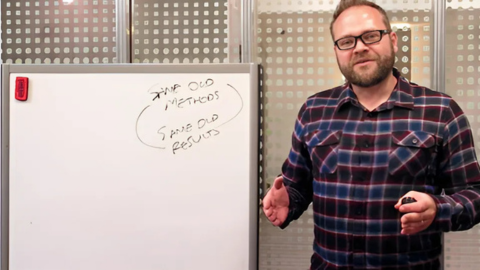Stop Throwing Spaghetti at Brick Walls! Why Pain Education Matters
By: Nataliya Zlotnikov, MSc, HBSc ∙ Estimated reading time: 3 minutes
By: Nataliya Zlotnikov, MSc, HBSc ∙ Estimated reading time: 3 minutes

Communication, Education, and the Curse of Knowledge in Clinical Practice
![]()
Are you teaching your patients Mandarin?

Just because we know something doesn’t mean others understand it, or even want to.
In a short and memorable video from Mike Stewart’s popular online course, Know Pain: A Practical Guide to Developing Your Patient Education Skills, this idea is brought to life in a surprising way: through Mandarin pick-up lines.
It’s a lighthearted but powerful reminder of how easily we can fall into the trap of assuming our patients are “on the same page” just because we explained something clearly...in our own language.
This blog offers a window into this engaging and evidence-informed course.
From Mandarin to Muscles: Why Communication Matters in Rehab
Have you ever treated a patient, prescribed exercises, and they felt great, only to return two days later with the exact same issue?
In retail, repeat customers are great.
In healthcare? Not always.
If patients consistently return with unresolved problems, we may need to look beyond manual skills and clinical protocols and consider how we're communicating.
Mike Stewart challenges clinicians to ask themselves:
![]()
Are we giving our patients expert advice…or speaking to them in a foreign language?

Education is not Copy-Paste
As physical therapists and allied health providers, we often focus on diagnostics and treatment techniques, but how much emphasis do we place on education?
![]()
“Patient education forms a significant component of modern health care.”
Dreeben (2010, p. 4)

Despite this, many clinicians have a limited educational toolkit (Hinchliff, 2004).
Education is frequently undervalued or assumed, both in practice and research (Bolton, 2010).
We’ve all heard the phrase, “Anyone can teach.” But ask yourself, how many truly great teachers have you had in your life?
The psychologist Fordyce once said:
![]()
“Information alone is like throwing spaghetti at a brick wall—it doesn’t stick.”
Too often, we cast patients as passive recipients of information.
We explain, instruct, and prescribe.
They nod. We assume it’s working until the spaghetti falls off the wall.
Education is Therapy
Education isn’t just about compliance. It’s about transformation.
In brain scans from Shpaner et al. (2014), a single participant is shown before and after 12 weeks of CBT-informed pain education.
-
Image A shows heightened activity in anxiety-related regions.
-
Image B shows a quieter, more confident brain.

This shift reflects what many clinicians know intuitively:
![]()
When patients understand their pain, their fear decreases,
and their capacity for recovery increases.
Course Highlights: Know Pain with Mike Stewart
Mike Stewart’s course on Embodia helps you become a more effective educator and communicator, so your patients leave with more than just instructions—they leave with insight.
You’ll Learn How to:
-
Transmit knowledge effectively
-
Understand the stages of learning
-
Identify and remove learning blocks
-
Balance challenge with support
-
Sustain curiosity and engagement
-
Use creativity and divergent thinking in clinical education
Click here to explore the full course
👉 Prefer a live experience?
Join Mike for his upcoming 2-day live course:
A Practical Guide for Persistent Pain Therapy - November 2025 edition.
Saturday, November 22nd and Sunday, November 23rd, 2025, from 10 AM EST - 6 PM EST, each day, hosted on Embodia.
Test Your Communication Skills: The Collaboration Game
In one of the course activities, Mike uses a playful and enlightening game to explore the dynamics of communication.
Try it out with a friend, colleague, or patient; you’ll quickly see just how easy it is to think you’re being clear when you’re really speaking Mandarin.
Watch Embodia co-founders Maggie Bergeron and Elie Afif demonstrate it in this clip from the course.
The Takeaway?
Great communication isn’t about delivering information—it’s about shared understanding.
Communication is therapy.
If we want to empower our patients, improve outcomes, and reduce pain, we must learn to speak their language, literally and figuratively.
Start learning with Mike Stewart on Embodia
Final Test:
Do you remember how to say it?
“Your eyes are very beautiful,” in Mandarin.
---
Published: 6 August 2025
Last update: 7 August 2025

MCSP, SRP, MSC, PG CERT
Mike is a physiotherapist, researcher and university lecturer with over twenty years of experience in helping people overcome pain.
He has an MSc in Education and Physiotherapy and is planning a PhD focusing on how people in pain make sense of their experience. His published work has received international praise from the leading names in neuroscience. Mike teaches across a variety of clinical settings including elite sports, and is an advisor on pain management to the International Olympic Committee.
Mike is a dedicated practice-based educator committed to providing evidence-based education to a wide variety of health professionals. His Know Pain workshops have provided clinicians around the world with practical pain education skills.